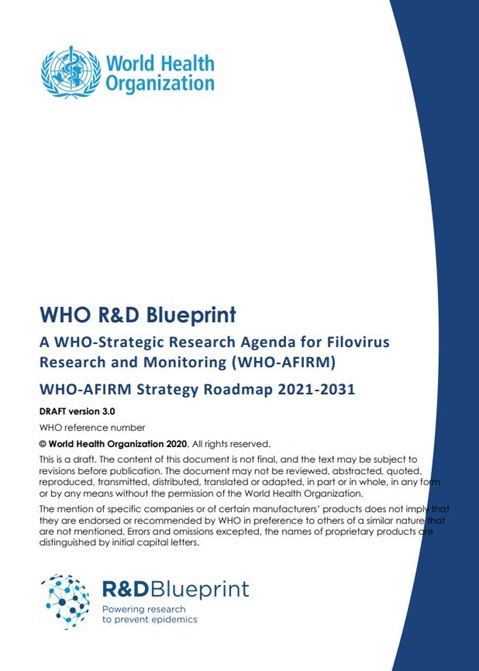A WHO-Strategic Research Agenda for Filovirus Research and Monitoring (WHO-AFIRM)
WHO-AFIRM Strategy Roadmap 2021-2031.

Overview
This document describes a long-term global strategy for filovirus research and monitoring.
This strategy is based on three principles described in this document, namely, anticipation, reinforcement and cure. The anticipation principle intends to foster research areas that may lead to improve our capacity to predict future outbreaks and detect them as early as possible, these research strategies should also enforce the rapid sharing of surveillance data, in particular across endemic countries in which filovirus outbreaks have occurred in the past. This principle also calls for engagement of stakeholders worldwide to transfer technology and support endemic countries in surveillance efforts and capacity building. The reinforcement principle is focused on the protection of populations at risk of filovirus diseases, and it is intended to promote the development of filovirus vaccines. It is therefore a call for academic and industry partners to accelerate preclinical and clinical testing of vaccines against filoviruses that pose a public health threat (e. g. Sudan virus, Marburg virus) and to establish research strategies to determine the epidemic potential of poorly characterized filoviruses. Finally, the cure principle intends to foster the development of post-exposure therapies that would help to reduce disease mortality as well as to reduce virus transmission.
The AFIRM strategy is unprecedented as it brings together multiple stakeholders into a common research agenda.
The success of this strategy will be based on the coordinated and directed effort supported by scientific discovery. It will also provide support to survivor communities and will engage additional partners as the initiative evolves.
